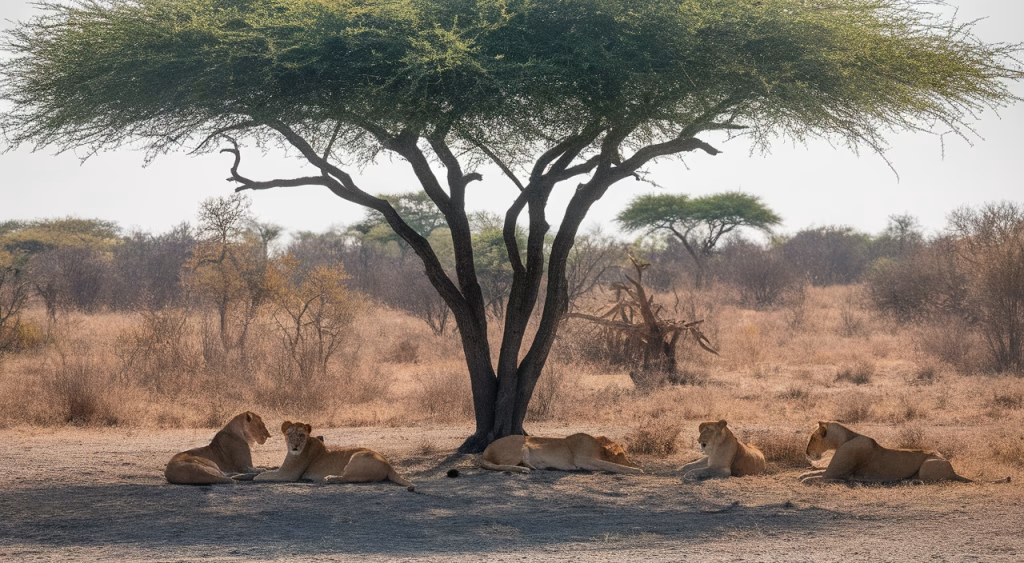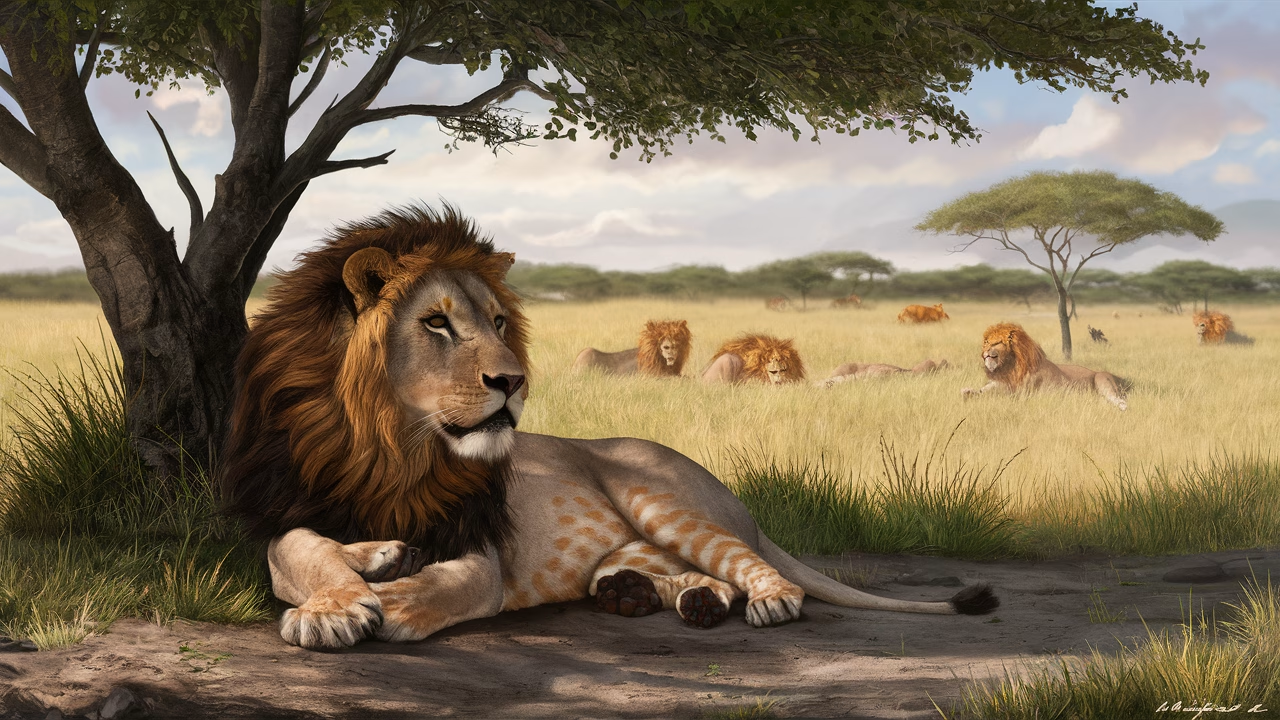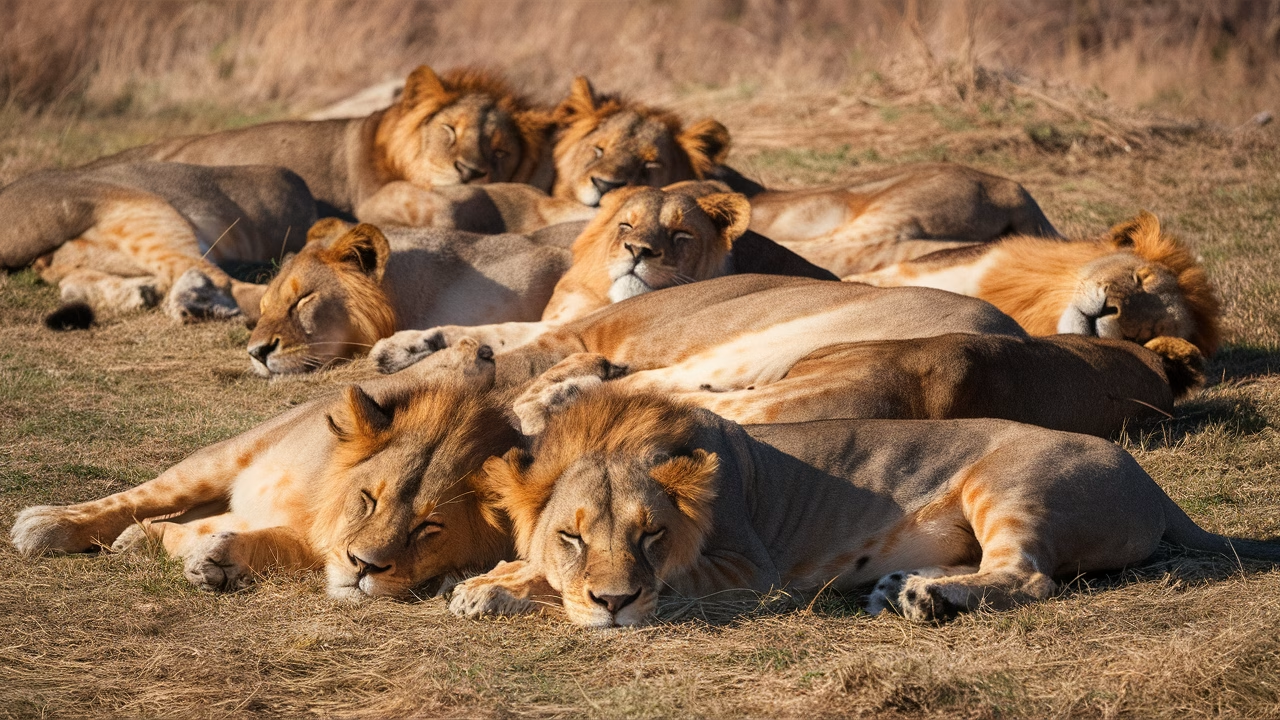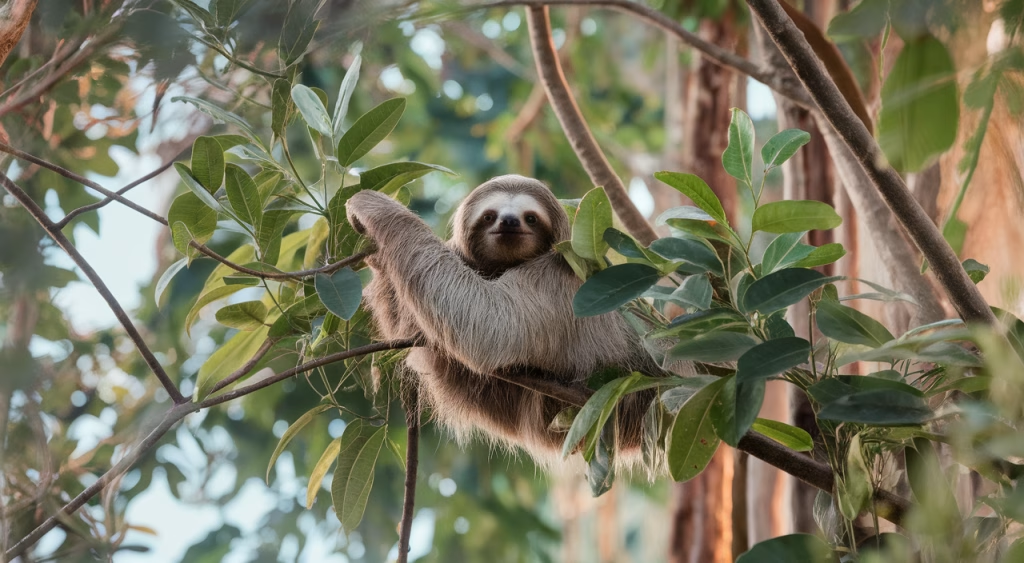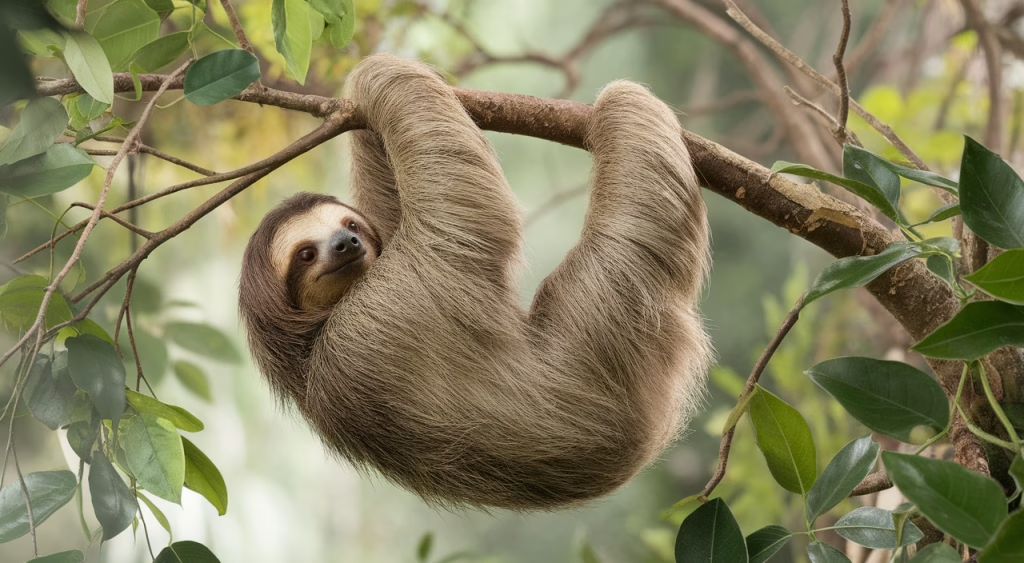Why Do Lions Sleep So Much?
Lions can sleep up to 20 hours a day, but have you ever wondered why a creature so mighty, so revered as “King of the Jungle,” would need so much rest? The answer lies not just in biology, but in behavior, climate, hunting strategies, and social dynamics. Understanding lions sleeping habits reveals they aren’t lazy—they’re masters of energy conservation perfectly adapted to their environment.
TL;DR: Lions Sleep A Lot—And Here’s Why
- Lions sleeping habits are based on necessity, not idleness—they conserve energy for short bursts of intense activity.
- How much do lions sleep? Typically 16–20 hours per day, especially during the hottest parts of the day to avoid overheating.
- Why do lions sleep so much? Their explosive hunting technique requires critical rest periods for physical recovery and hunting success.
- Do lions sleep all day? Not exactly. They rest intermittently and become most active from dusk to dawn.
- Understanding lion behavior in the wild reveals that lions adjust their sleep based on environment, prey movements, and pride responsibilities.
Myth vs. Reality
The Lazy Lion Myth
If you’ve ever observed lions on safari, you’re likely to see them sprawled beneath acacia trees, hardly moving. It’s easy to label them lazy—but this is a misjudgment born from human expectations, not ecological truth. Lion sleep patterns are actually a sophisticated survival strategy that’s been perfected over millions of years.
The Truth Behind the Yawn
As wildlife researchers have discovered, lions sleeping habits aren’t about laziness—they’re about survival efficiency. Their bodies are built for rest-heavy rhythms that align with cooler night hours, the prime time for hunting. This behavior showcases evolutionary fine-tuning where strategic rest equals hunting readiness.
Factors Affecting Lion Sleep Patterns
The Role of Temperature and Habitat
Lions inhabit regions where daytime temperatures often soar above 35°C (95°F). In such harsh landscapes, resting during the sweltering day isn’t just comfortable—it’s life-preserving. These lion sleep patterns reduce hydration loss and conserve precious energy in scorching savannahs, directly impacting their survival success.
Feeding Frequency and Energy Expenditure
Lions expend vast amounts of energy in short explosive hunts. A successful kill can feed a pride for days, resulting in substantial downtime as digestion kicks in. This explains why do lions sleep so much—they operate like sprinters, not marathoners, expending energy in powerful bursts, then recuperating heavily to prepare for the next hunt.
Age, Gender, and Social Role
| Lion Type | Estimated Daily Sleep | Activity Level |
|---|---|---|
| Male Lions | 18–20 hours | Guarding territory, mating, resting |
| Female Lions | 16–18 hours | Hunting, cub care, resting |
| Cubs | Up to 20 hours | Playful but sleep frequently |
Importance of Sleep for Lions
A Foundation for Survival
Sleep isn’t just about physical recovery for lions—though that’s crucial—it also supports immune function, hormone regulation, and neurological processing. For lions, especially males defending pride territories or females orchestrating hunts, adequate rest directly impacts survival rates and reproductive success. These lions sleeping habits ensure peak performance when it matters most.
Neurological Benefits
Lions experience deep and REM sleep stages similar to domestic cats. During REM phases, they may twitch, snore, or “paddle” their paws—behaviors linked to memory consolidation and sensory information processing. This neurological rest is especially vital for territory surveillance and learning from hunting experiences, making lion sleep patterns essential for cognitive function.
Observations in the Wild
A Day in the Life of a Lion
If you were tracking a lion for 24 hours in the Serengeti, you’d discover that most of your time involves patient observation. Lions tend to lounge, stretch, nap, and nap some more until the sun dips below the horizon. Then their energy transforms—prowling begins, communication intensifies, and hunts are orchestrated with deadly precision. This dramatic shift explains how much do lions sleep and why.
Seasonal and Territorial Variation
Lion behavior in the wild varies significantly with seasons. During dry seasons when prey is scarce or migratory, lions may reduce rest time, spending more hours walking territories or stalking distant prey. In wetter seasons with abundant herbivores, they can afford longer sleep stretches—creating those iconic lion piles you recognize from wildlife documentaries.
Implications for Conservation Efforts
Protecting Critical Rest Areas
Understanding lions sleeping habits reveals that rest periods and sleep locations are integral to daily lion survival, yet these areas are rarely prioritized in conservation planning. Densely shaded canopies and protected thickets near water sources provide essential cover—without these safe spaces, stress increases and natural lion sleep patterns break down completely.
Human Activity and Disrupted Sleep Cycles
Vehicle traffic, tourism overcrowding, poaching, and agricultural encroachment directly impact where and how lions can safely rest. Disruption in their natural sleep patterns creates cascading effects on pride cohesion, cub survival rates, and even increases human-lion conflict due to stress-driven behavioral changes such as increased daytime movement.
Final Thoughts
So, do lions sleep all day? Not entirely, but it certainly appears that way to casual observers. Lions have evolved rest-centric lifestyles out of pure necessity—not laziness. Sleep represents a calculated survival strategy, perfectly adapted to extreme heat, prey movement patterns, and their intense activity bursts. Understanding lions sleeping habits isn’t simply about wildlife trivia—it’s about recognizing the essential rhythms that guide African savannah ecosystems and identifying what we must preserve for lions to continue thriving in the wild.
Frequently Asked Questions
How much do lions sleep each day?
On average, lions rest between 16 to 20 hours a day depending on age, gender, and environmental factors.
Do lions hunt at night?
Yes, lions are primarily nocturnal hunters. They rely on cover of darkness to stalk prey more effectively.
Why do male lions sleep more than females?
Males often guard larger territories and mates, exerting intense energy in short, sporadic bursts that require prolonged rest periods to recover.
Are lions active during the day at all?
Occasionally, especially in overcast weather—but typically they reserve daylight hours for napping in shaded areas.
What happens if lions don’t get enough rest?
Sleep deprivation can lead to poor hunting accuracy, impaired social interaction, weakened immune systems, and increased territorial conflict.
How do researchers study lion sleep in the wild?
Through GPS collars, camera traps, and direct visual observation—plus behavioral logs kept during different times of day and season.
Does captive lion behavior differ from wild lions?
Yes, captive lions may sleep less or display altered schedules due to feeding consistency, artificial lighting, or lack of need for hunting.

